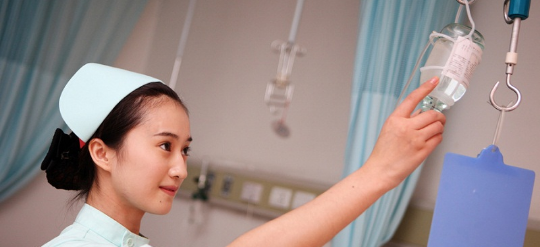
Playing the rehydration, the most patient is to bring the child's parents, one holding the children singing songs, the other holding the infusion rack to accompany stroll; followed by the elderly, with a news or chat with people around. But those who are anxious to sit on the impatient, and even secretly to the infusion tube switch to the maximum - 250 ml of rehydration half an hour to get, leave!
Unauthorized changes in fluid replacement speed, not only affect the efficacy, but also extremely dangerous. Intravenous infusion rate must be based on the patient's age, condition, drug properties, the total amount of infusion and infusion purposes and other factors to determine.
For adults, the speed of ordinary chemicals (such as anti-inflammatory drugs, stomach medicine, electrolytes) is generally 60 to 80 drops / min; to correct dehydrated drugs (such as mannitol) to drip to maximize the maximum; Drugs, fat milk and other parenteral nutrition drugs and blood products, the relative to dripping a little bit.
Children under 12 years of age and the elderly, due to incomplete or functional development of organs, rehydration rate is generally controlled at 30 to 40 drops / min; fever, acute
Rehydration too fast, will increase the burden on the heart. People's blood vessels are a certain capacity, if the body suddenly add too much short-term liquid, the amount of cardiac blood will increase, the burden will increase, poor heart patients may be heart failure and arrhythmia. On the other hand, rehydration too fast may cause vascular inflammatory lesions, and even affect the blood vessels of the organs.
The general infusion tube 15 drops = 1 ml, the number of milliliters per hour = drops per minute ÷ 15 × 60. Such as 500 ml of liquid, 60 drops per minute, then about 500 ÷ hourly input ml × 60 = 125 minutes drop finished. 250 ml of liquid, 80 drops per minute, then 46 minutes to drop finished.
Some drugs (such as antihypertensive drugs, hypoglycemic agents) do not have to completely drip, according to the specific circumstances of control. Take antihypertensive drugs for example. Dropping of antihypertensive drugs, often using micro-pump or governor to precisely control the rehydration rate. Many elderly people are always looking helplessly in the infusion tube, complained again and again, "so slow to drop what year, what month?" In fact, blood pressure is stable and no longer continue to drop the drug. So, slowly dripping, anxious not to come. Buck too fast, but it will cause dizziness, rebound and other adverse consequences.
If you want to adjust the speed of infusion, it is recommended to ask the health care workers first, to inform their feelings and needs, they will adjust as appropriate. But do not adjust their own drip rate, so as not to affect the treatment.